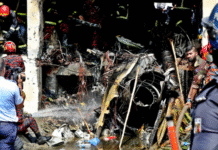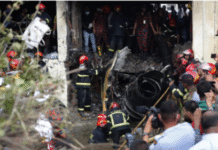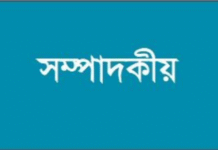
We have a constitutional right to public health and safety
Every state in the world, whether democratic or authoritarian, has some guiding principles to run its affairs — we call it a constitution. To make it effective, these guiding principles are backed by certain laws, rules, procedures, institutions, and people who lead them.
Likewise, Bangladesh has her constitution of 1972. Article 15 of the constitution states that “It shall be a fundamental responsibility of the State to attain ……… with a view to securing to its citizens (a) the provision of the basic necessities of life, including …………. and medical care.” It further states in article 18 (1) that the state shall regard the raising of the level of nutrition and the improvement of public health as among its primary duties.
Unfortunately, the state and the assigned institutions have miserably failed in carrying out their primary duties at a time when we need them most. There are several death reports as patients were denied treatment by private and public hospitals. Md Almas Uddin died of brain haemorrhage as his relatives failed to admit him to any hospital for critical care. For 16 hours, his relatives tried every hospital they could, only to be refused admission.
Suman Chakma, a bright young student of the Institute of Education and Research at Dhaka University, died of infections from lung tumour. He too failed to get the treatment he needed. Suman knew he was dying and wrote his epitaph on Facebook: I don’t have Covid-19 but I will die for it.
In a different situation, hundreds of doctors have been infected with Covid-19. The number will skyrocket if the number of infected health care professionals is also taken into account. They were infected mostly by the patients who came for treatment hiding Covid-19 symptoms. Besides, there are strong allegations that the personal protective equipment (PPE) was not up to the mark and may have led to a large number of infections. The death of Dr Md Moyeen Uddin sparked questions about the safety of the doctors and health care professionals — it is widely believed that he was infected by Covid-19 while treating patients at a hospital in Sylhet at a time when PPE was a scarce thing to get.
Tens of thousands of people are facing extreme difficulties in accessing health services and doctors and other health care professionals are constantly raising safety concerns and the need for adequate safety gear to fight Covid-19. Except for telemedicine services, hospitals and clinics are attending patients at a very limited scale. The doctors too, do not know for sure, whether a patient is carrying Covid-19 or not. All these are happening due to the total chaotic situation created because of the country’s very poor preparedness to combat the Covid-19 pandemic.
The whole world is affected by Covid-19 but the stigma of the patients and health care professionals is somewhat rare elsewhere in the world. There are reports of abandoning Covid-19-infected elderly people in forests and streets, and forcing patients to leave their homes in fear of spreading the infection. In some cases, doctors were even told by their neighbours not to return home after hospital duty.
This phobia started soon after the first patient of Covid-19 was identified back on March 8. PPE production and distribution seems to be another dilemma — in many cases, the quality of the PPE came into question as these were made of ordinary shopping bags and without enough R&D. It seems that there is no competent authority to coordinate and check the quality of such critically important gear to fight Covid-19.
Lessons from China, Italy, the UK, and Spain indicated that stern measures were required to contain the outbreak. Bangladesh did get more than two months to get herself prepared and fight this pandemic. Unfortunately, none had the insight — even after knowing the consequences, her functionaries and the people within decided to fight this through PR events only. Sadly, we even saw the top brass saying that a limited number of infections was a sign that Bangladesh was adequately prepared.
It is pertinent to mention here that two committees were formed in all districts and upazilas by the Health Services Division of the Ministry of Health and Family Welfare by an office order dated March 3. The committees were headed by the deputy commissioner in each district and upazila nirbahi officer in each upazila. The Cabinet Division later on March 10 communicated the order to DCs and UNOs. It took almost a week to communicate this message to the DCs and UNOs by the Cabinet division. This was the only visible development at that time. However, it took another whole week to start mobilizing things and start the actual work.
As stated in the beginning, the constitution is supported by acts, policies, and institutions. Let us have a look at the legal provisions and determine the scope of combating such a crisis. Surprisingly, we have every provision in the existing acts to combat such pandemic, disaster, or public health emergency — whatever we call it.
There are clear provisions in Article 29 of the Upazila Parishad (Amendment) Act 2011 to form committees headed by the vice chairman. Such committees include a) committee on health and family welfare and b) committee on public health, sanitation, and pure drinking water supply. Article 45 of the Local Government (Union Parishad) Act 2009 also has provisions for such committees including a) committee on education, health, and family welfare and b) committee on social welfare and disaster management.
If there are such provisions, then the big question is what prompted the government to form the coronavirus prevention committee headed by the deputy commissioner at district Level and upazila nirbahi officer at upazila level? Probably, a serious level of governance problem and malpractices in running the affairs of upazilas and unions by the elected representatives may have prompted the government to form the Coronavirus Prevention Committee led by the civil administration instead of elected representatives.
Members of the parliament, zila, and upazila parishad chairmen were included as advisors to the committee. And the action is justified as we see a serious level of misappropriation and nepotism in relief distribution involving mostly local level public representatives and dealers affiliated with the ruling party. This is how even after being a democratic people’s republic, we are failing our constitution.
Now that we had committees at the local level, did they perform well? This is something that needs to be assessed by experts within the government. We see that after more than a month and a half, dedicated hospitals are being set up in different districts — at a time when the number of infections is rising at a very fast pace. As this is a public health emergency, these committees could have been led by district civil surgeons and upazila health officials, giving them enough authority to dictate any measure needed to contain the spread. A separate civil administration-led committee could look after relief operation, law and order, and other related matters.
The prime task of the Coronavirus Prevention Committees should be expanding the testing facility and implementing social distancing as the WHO repeatedly advised on these factors. These two are the front-line tools that allow the doctors to assess the needs of patients and encourage people who are positive of the virus to isolate. It also helps epidemiologists track the spread of the disease and tell us what kind of policies we need and how to allocate health resources.
And perhaps most importantly today, it would be essential to expand our testing to ensure that health care workers can get back to the front lines. In the longer run, testing of patients or people who come down with symptoms and then tracking and isolating them will prevent further outbreaks and allow us to get back to normal. However, we need to carefully examine whether home isolation will work or only contribute to further spreading within the family, leading to a social pandemic in the context of Bangladesh.
When it comes to testing, Bangladesh is not doing enough. The Health Ministry, IEDCR, DGSH, and other key institutions which are at the forefront in combating this crisis may refer to the scarcity of testing kits to defend the situation. But their job is to foresee such a crisis and advise the government, so that it can take appropriate actions and avert the looming catastrophe. To make things worse, we see bureaucratic bottlenecks active when an indigenous kit is developed — instead of collaborating and expediting its release, we see delays in the approval process.
Those who were responsible for advising the government have either failed, or maintained a safe distance and avoided advising the government in taking timely actions. In the beginning, testing was kept limited only to the IEDCR laboratory. It was subsequently expanded only in early April. The centralization is now witnessing the consequences — a sharp rise in infection in April which is quite similar to the patterns in Italy, Spain, the UK, and the US.
Now going back to the constitution, it will not be unjust to say that our public health care system is not functioning the way it should. When people are denied regular treatment, it is very unlikely that we will be able to combat a pandemic properly.
But there is hope of course when we see the former captain of Bangladesh Cricket forming a mobile clinic and deliver the medical needs at patients’ doorsteps. Some doctors are attending patients at their homes.
In a democracy, the constitution is much more than a written document. It becomes meaningful to its people only when it is supported by strong institutions, and the public health sector is no exception. Timidness of our public health leaders has jeopardized lives — both patients and doctors. The country will rise from Covid-19 but public health needs a major overhaul.
As stated in the constitution, the state can provide medical care to its citizens only by establishing an improved public health system where every citizen shall have equal rights to health care, and the health care professionals are equipped with all necessary logistics. To this end, public health should be at the core of the development agenda of the government in the coming days and it should be led by competent leaders who can rise above all forms of interests and believe the motto — come to learn and go to serve.
Meer Ahsan Habib is a communication for development professional. He can be reached at meer.riyadh@gmail.com.









